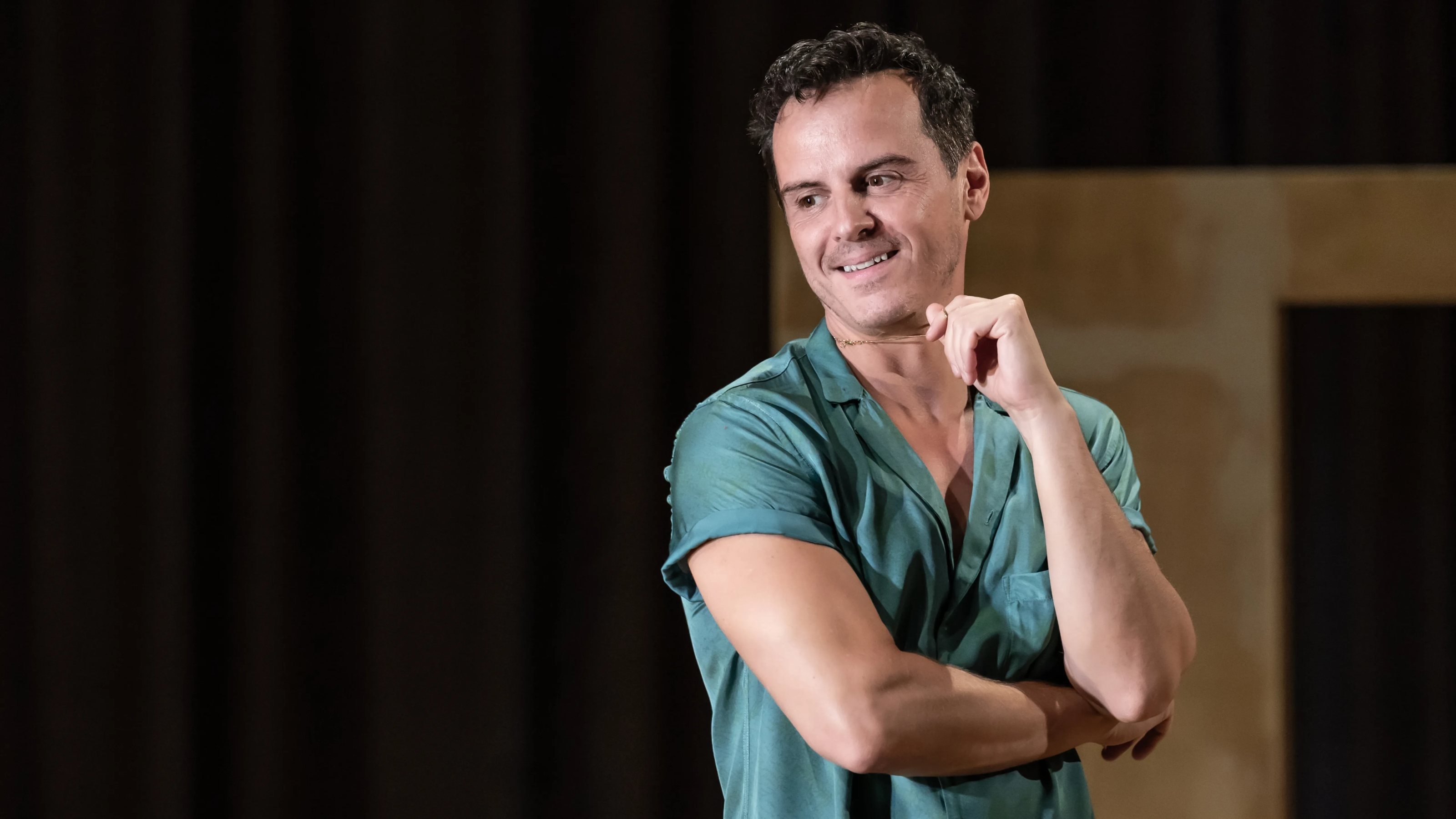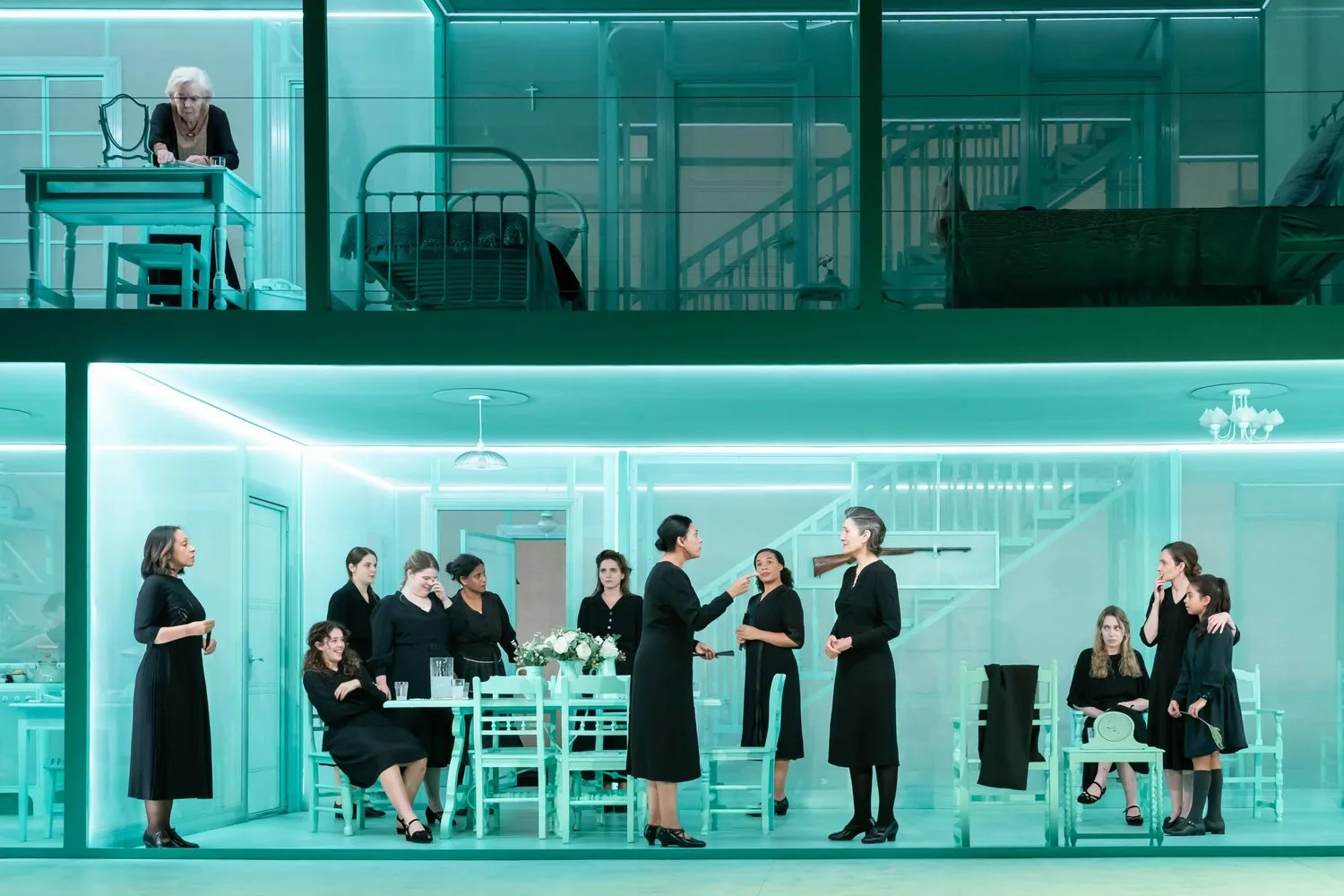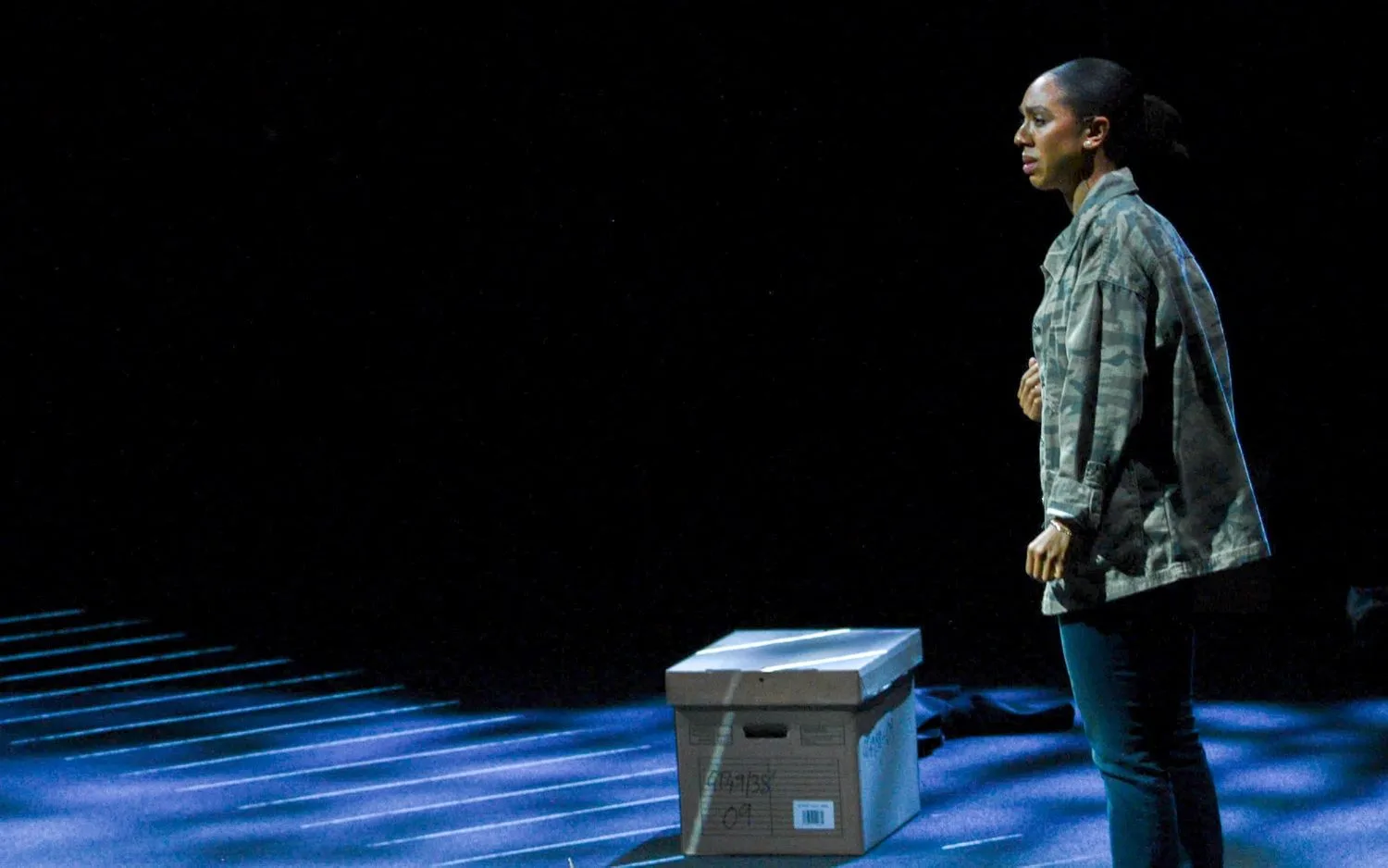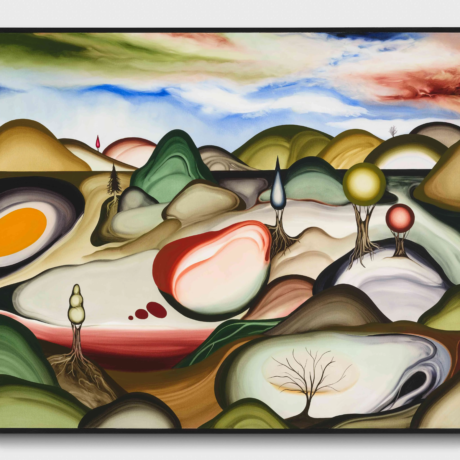In her column ‘Culture at Home’ Gabrielle de la Puente of the White Pube shares her latest finds, focusing on culture best experienced at home. This week, Gabrielle is sharing how to experience the joys of the theatre without leaving the house.
I really enjoy a good marathon. Not the running kind. Chronic fatigue barely tolerates a walk to the little Tesco and back. No, I’m talking about a cultural marathon. Getting under a blanket and watching a whole season of something in a day. Hiding in the bath and reading an entire book in one sitting (or one lying?). I do it quite often.
One Saturday a few years ago, I played the entirety of the 2005 video game Shadow of the Colossus in a single day. I’d heard it referenced a hundred times back when I was learning about game design, and I just got so sick of not knowing what people were talking about. I could have played it casually over the course of a month like a normal person but I wanted to have played it yesterday. More than that, I wanted to really know what the game did on an artistic level that earned it a cult following. This was back in winter of 2020, and lockdown was wearing on me. I wanted to play it like people did in 2005; I didn’t want to be interrupted by Downing Street press conferences, so I needed to claim a day and make it so that nothing else existed except me and this famous game.
I started early and I kept the curtains closed all day so that even those few hours of winter sunlight wouldn’t interfere with the screen. I ordered a giant family size pizza (with sides) around about my idea of midday. I played that thing. The credits rolled late at night, and then I collapsed into deep and satisfied dreams. Do you know what, it’s the only day I remember clearly enough from that time that I can write about it. I remember it because it was such a different day to the rest of them. So much more fantastical, so concentrated. I was living on my own at the time, but this managed to be a private day, and not a lonely one. Because in my manufactured oblivion, I had the game and until it was over with, I didn’t need anyone.
There’s something to that mad inhalation of culture. Down it, down it. I used to have these two mates in sixth form who would torrent TV programmes constantly. In order to finish multiple seasons over a weekend and in time to discuss what they would seen back in the common room on Monday mornings, these two would watch everything back on 1.5x speed. I used to think they had lost the plot, or that maybe they were depressed. I get it now. Life is full of interruptions and demands, and if it’s not school, it’s work. Or it’s the news, or it’s the phone ringing for no good reason. Art is better than all of that but there is more art than any one person can enjoy in life. We might as well spend our days trying to catch up on what we can.

So, it’s a Saturday morning in winter again and I’ve decided it’s time to go for a run. I’m signing up to the National Theatre At Home streaming service. Last year, I saw a recording of the Jodie Comer-starring one-woman play Prima Facie in the cinema and I thought it was a revelation. It was only a recording, not live-streamed, yet it still made for a very present, urgent, active experience. And I’m not in London to see these big hitters in person. I would be worried about the price of the tickets as well. The online subscription is on par with Netflix and Disney and the like at £9.99 per month; you get to watch as many plays as you like for that price; and you don’t have to pay a further £9.99 to the person behind the bar at the theatre for a lime and soda and a packet of posh crisps.
Today’s marathon is going to take the form of three plays with breakfast, lunch and dinner. There’s a load of Shakespeare to choose from: Macbeth, A Midsummer Night’s Dream, King Lear, Julius Caesar. There’s also Phoebe Waller-Bridge’s Fleabag, Michaela Cole’s Chewing Gum Dreams, and Prima Facie is coming soon. The catalogue features famous tragedies reimagined, including Seneca’s Phaedra, as well as Euripides’ Medea (with new music by Goldfrapp); I don’t have a clue what either of these are about, or why they have stood the test of time, but I’m glad they’re on there so I can find out. Open to being surprised, open to being educated. Open to this being another memorable day. I get a bowl of granola and click play on Vanya. There’s not too much thought behind it; seems too early in the day for Shakespeare, and Vanya is a one-man play starring Andrew Scott who I think is a funny guy.
Vanya, it turns out, is pretty funny too. Based on Anton Chekhov’s 1897 play Uncle Vanya, Simon Stephen’s update sees a family at the whim’s of their uncle in the Irish countryside. An uncle that used to be a famous filmmaker but is now a dying patient to his bored, young wife and the doctor that is in love with her; and a tyrannical landlord to the people who used to find him an inspiration, and who now want him dead. It was originally written for a cast of nine, but Andrew Scott plays everyone. He cycles through nine different accents, the different postures, and all the unique foibles of Chekhov’s characters. I didn’t care much about the story. Selfish men unworthy of their egos do not interest me. But I did care about the skill it took Andrew Scott to play charades for almost two hours — because in bagsying all nine positions, it was a selfishness he very much deserved.

I felt really energised after seeing him do that, so it was a good start to the day. Lunchtime was slower. I chose The House of Bernarda Alba, about a grieving house full of pent-up daughters, because I studied Federico García Lorca’s 1936 play back when I did Spanish at A-Level. I should say, all plays on the platform come with customisable subtitles. I believe all come with the option for audio description for commentary on visual elements of productions, and there are a few with British Sign Language interpretation. As I’m back studying Spanish at the moment, I had actually clicked on Vanya in the morning because it had Spanish subtitles available — as does Frankenstein. Bernarda, ironically, does not. All plays come with the script available to toggle alongside the film. I had it up throughout the second act of my marathon, and it really put into perspective the work actors do. It is reactive too, so clicking a line jumps you to that point in the film — a great resource for anyone wanting to study how a script plays out on stage second by second and line by line.
My head was heavy with drama come the evening, and soon my heart felt heavy with it, except this was real drama, poisonous and close; I ended the day with the 2023 production of Grenfell: in the words of survivors. If you’ve ever been to a Forensic Architecture exhibition, it was like the theatrical version of that. Drawing on data, material from the inquiry, and recent interviews with residents, this is a verbatim play put together by Gillian Slovo to chart the tragedy of Grenfell. I was distraught by the end of it, pulled it by the sensitivity of the actors, and the script, and the stark, empty stage they circled. This play alone is worth the monthly subscription. It made me want to march on Downing Street and I think everyone should watch it.

I went to bed spent. I woke up thinking about the 2020 book ‘Culture is bad for you’ on inequality in culture in the UK. Their research states that in a given year, 60% of the population watch a film, and a much smaller 23% of the UK population see a play. National Theatre At Home has the potential to bring that second figure closer to the first by re-packaging drama into a more accessible art form. It certainly did that for me yesterday. I watched three plays that are over and done with now, and which I never would have gotten to see otherwise. I was glad to have watched them at home where I feel most able to manage my chronic illness, but I was also glad when it came to that final watch. I had to pause Grenfell twice because I couldn’t see the screen for my tears. I had to take a breather. I reckon I would have been so painfully tense if I had been in the theatre. At home, I could be as emotional as I really was.
I’ll be keeping the subscription, but no more marathons. Good theatre is worth slowing down for.
Words by Gabrielle de la Puente





